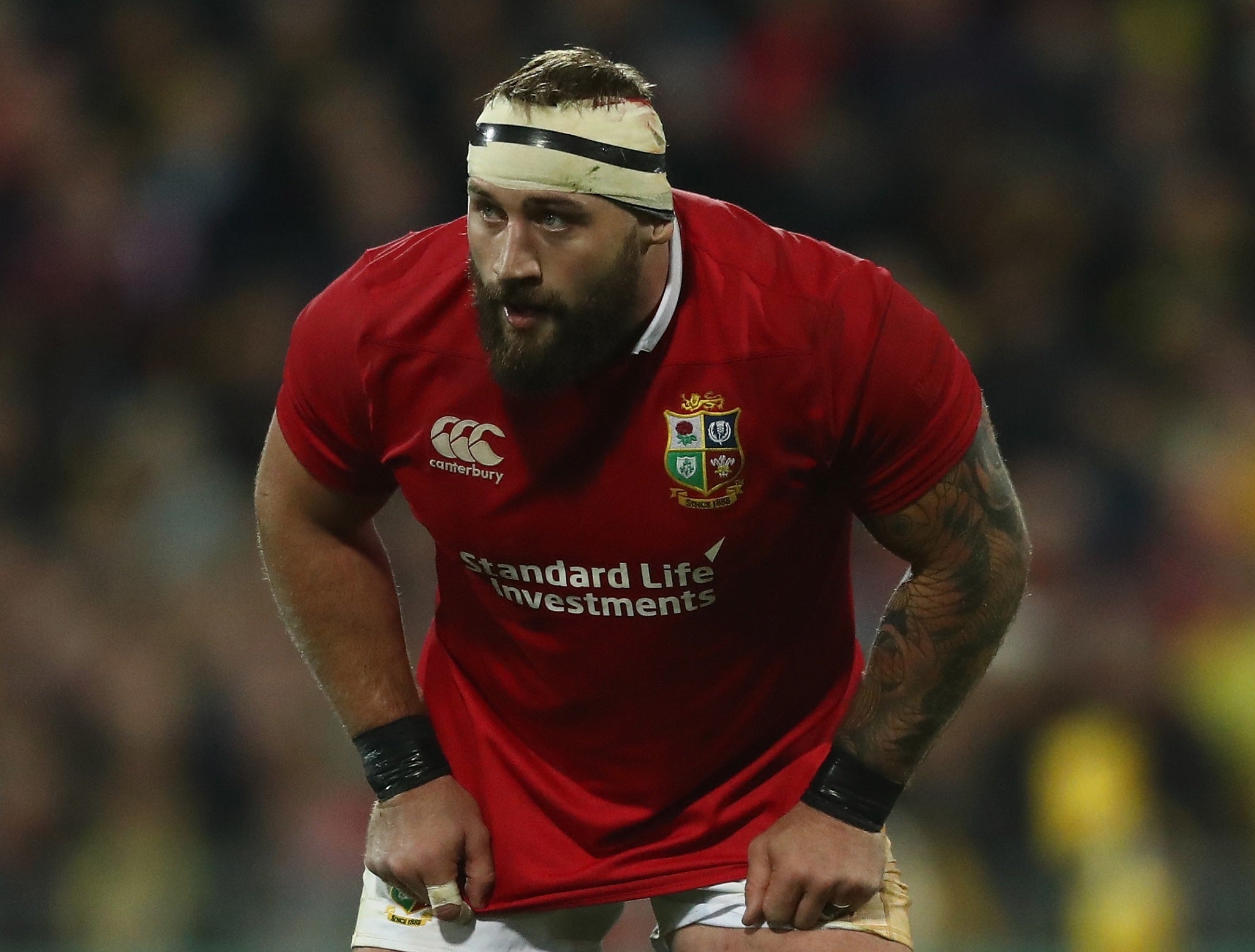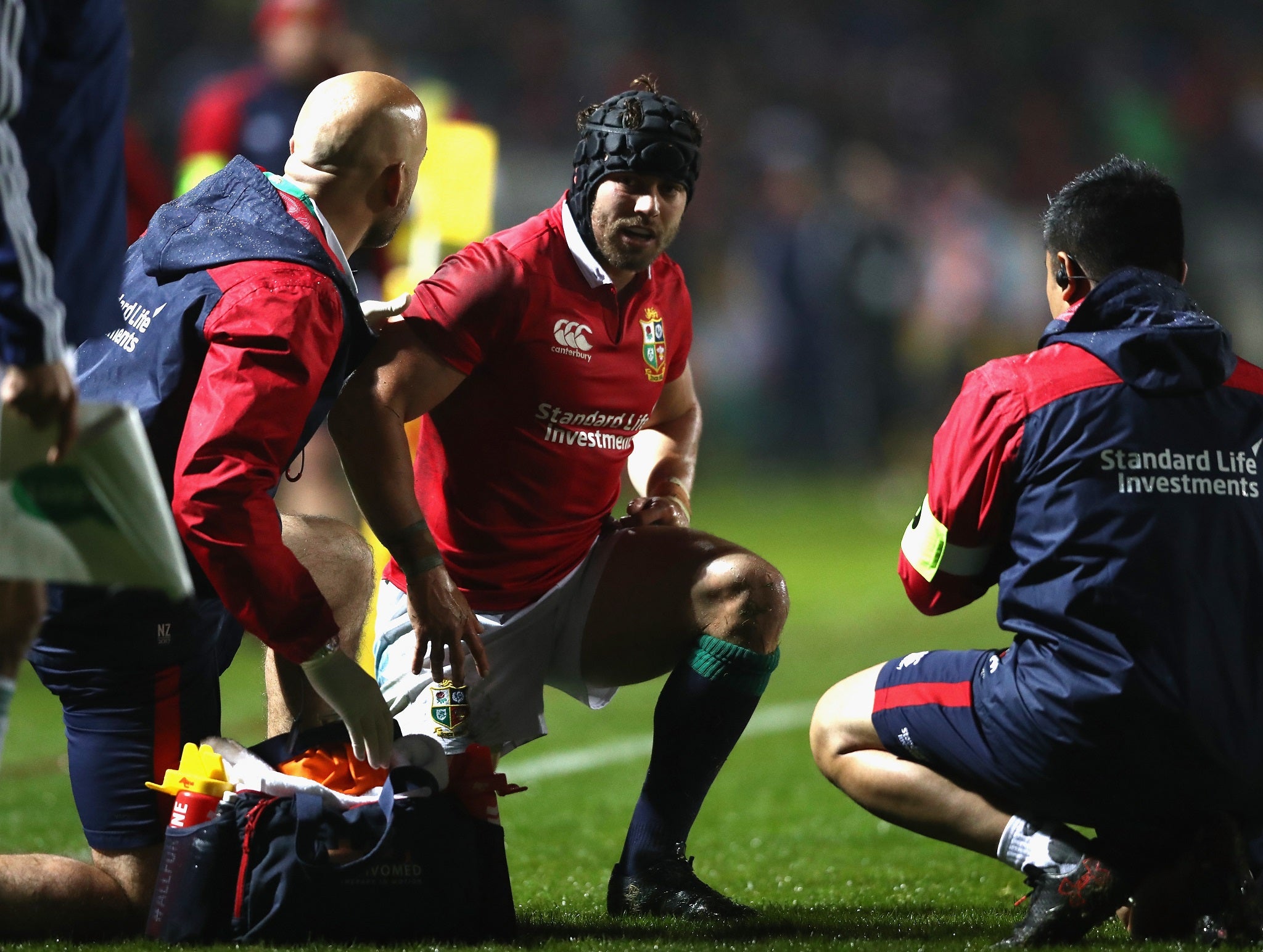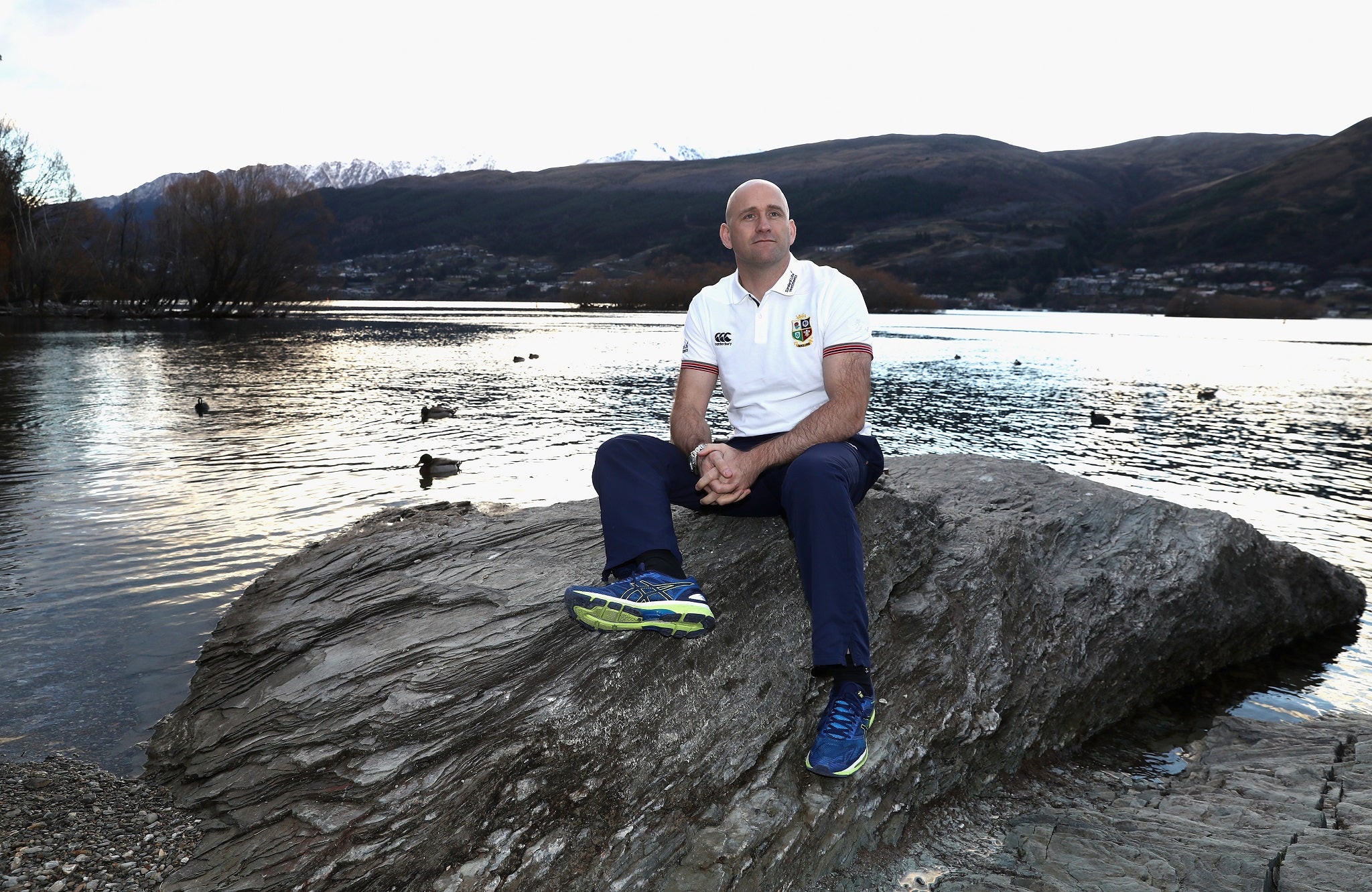British and Irish Lions 2017: Concussions still able to 'slip through the net' despite advancement in treating head injuries
Both Joe Marler and Leigh Halfpenny suffered with symptoms of concussion but were not taken off the field for head injury assessments

Your support helps us to tell the story
From reproductive rights to climate change to Big Tech, The Independent is on the ground when the story is developing. Whether it's investigating the financials of Elon Musk's pro-Trump PAC or producing our latest documentary, 'The A Word', which shines a light on the American women fighting for reproductive rights, we know how important it is to parse out the facts from the messaging.
At such a critical moment in US history, we need reporters on the ground. Your donation allows us to keep sending journalists to speak to both sides of the story.
The Independent is trusted by Americans across the entire political spectrum. And unlike many other quality news outlets, we choose not to lock Americans out of our reporting and analysis with paywalls. We believe quality journalism should be available to everyone, paid for by those who can afford it.
Your support makes all the difference.The treatment of concussion in rugby is taken more seriously than ever due to a combination of player welfare and a fear that a failure to try and prevent head injuries may come back to haunt the sport as it has done in American football, yet as the British and Irish Lions tour of New Zealand shows, issues can still “slip through the net”.
Both Leigh Halfpenny and Joe Marler have suffered from the after-effects of a concussion, yet failed to be taken off the field during matches for a head injury assessment [HIA]. The incidents raised concerns that despite the introduction of the HIA process, concussions are still not being picked up and properly dealt with.
Dr Eanna Falvey, the team doctor for both Ireland and the Lions, has stressed that while head injuries are being treated properly, there is still room for improvement in identifying and responding to concussions during matches, as the cases involving Halfpenny and Marler show, yet he revealed the measures that the Lions are taking on the tour of New Zealand to do all they can to try and limit the prospect of an injured player continuing in a match.
“The whole HIA management is a collaborative event now. I’m not there on my own making a decision about that anymore,” Dr Falvey said on Tuesday. “To fill you in on how that now works, we’ve raised the stakes on how we do this considerably. For all our games, one of our medical team sits in the coaches’ box as a spotter. He has a computerised system where has got the broadcast feed and he can rewind that. So if there’s a bang, or somebody gets a bang, he can look at that for me.
“At the same time I also have access to a system on the sideline, an EVF system from the NZRU, where they have an operator working the system, and I have 12 views where we can look at any impact and decide whether or not it meets the criteria for an HIA or permanent removal.
“Added to that, you have an independent match-day doctors’ team, which is usually three doctors, who basically are on the sideline reviewing that and watching the game themselves.
“We made a conscious decision before the tour that the independent doctor would do all the HIAs, so basically we removed any even implication in any way that we might be favouring getting guys back on or not.”
One incident of note came in the 34-6 victory over the Chiefs that involved both Marler and the second-row Courtney Lawes. As they attempted to tackle Chiefs prop Sigfried Fisiihoi, the two clashed heads and Lawes was taken from the field for an HIA – his second in the space of a week after being knocked out in the defeat by the Highlanders – yet Marler remained on the field.
Lawes returned to the field after passing the HIA, but Marler would go on to show signs of concussion after the match and was immediately put into the return-to-play protocols ahead of the first Test.

Dr Falvey admitted that there has been a difficulty in assessing players on this tour and informing them that they cannot continue in the match, given how important the warm-up games were to playing in the test matches against the All Blacks.
“I’ve had a couple of very tough conversations in this tour where players couldn’t go back on, and they were extraordinarily disappointed, particularly early in the tour, because they’re missing an opportunity to make their case for a test position,” he added. “We have to look after them, we have go to protect players from themselves.
“So we’ve used the independent match-day doctor to do the HIA for us. It is a truly independent process, but even with that, things get missed. In the Joe Marler case for example, he clashed heads with Courtney Lawes, and we removed Courtney for an HIA which he passed.

“Joe at the time was ok, and the video review doctor and the match-day doctor were quite happy with him staying on. However, that evening and the next day, when we reviewed our own video, we could see that Joe had actually gotten up and fallen to the ground again, and that is a permanent removal criteria.
“There are ten criteria on the HIA, which if you fulfil any one of those, you aren’t supposed to do an HIA. You are removed with a suspicion of concussion and you go through the graduated return to play.
“So then we moved Joe through a graduated return to play. Obviously that’s not ideal, but you’ve in a situation there where, using the best tools that you’ve got available, something slips through the net, but we still found it the next day and made sure we looked after him properly, he wasn’t in any contact situation until it was indicated by the graduated return to play.”
The problem is that in a game with the physicality levels of rugby, there will always be the potential for concussions no matter how good the team is that’s looking out for head injuries. While the incident with Marler is alarming, more often than not concussions do not slip through the net, and given how far treatment levels have come on since the last Lions tour, the players are in good hands to receive the best protection available.
Join our commenting forum
Join thought-provoking conversations, follow other Independent readers and see their replies
Comments